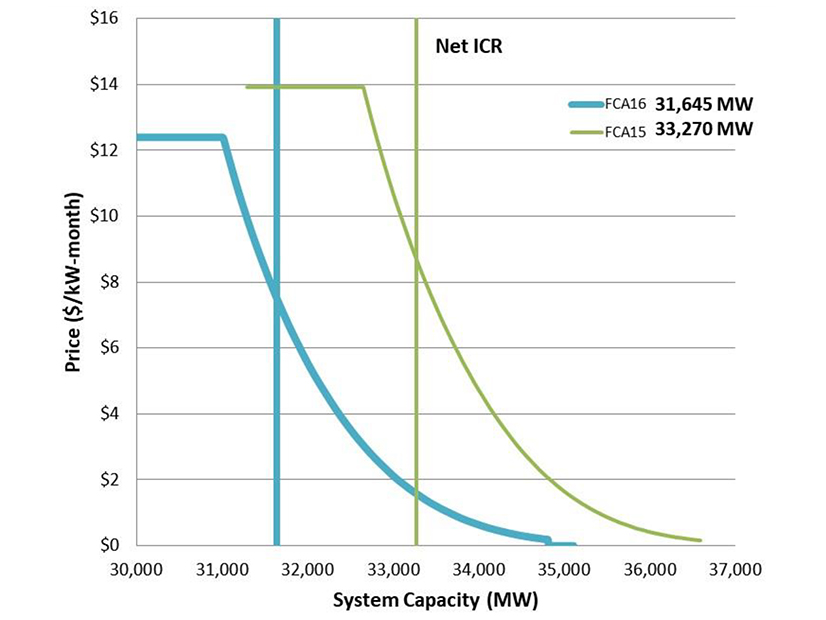
ISO-NE’s Proposed ICR Shows Decrease for FCA 16
ISO-NE is proposing an installed capacity requirement (ICR) of 32,568 MW for Forward Capacity Auction 16, a 1,585-MW decrease from FCA 15, the RTO told the NEPOOL Reliability Committee on Wednesday.
ICR is the minimum system capacity needed according to the Northeast Power Coordinating Council reliability criteria. ISO-NE’s annual calculations also account for operators’ ability to purchase energy from neighboring balancing authority areas during a capacity deficiency.
The RTO also told the committee that the Maritimes, Hydro-Québec Phase II, Highgate, New York AC and Cross Sound Cable ties would provide a combined 1,830 MW of benefits for FCA 16, a 95-MW increase from FCA 15. Benefits from the Hydro-Québec Phase II (40) and New York AC (29) ties make up 72.6% of the additional megawatts.
ISO-NE said New York modeled behind-the-meter solar using five historical profiles (2015-2019) as opposed to the single historical profile (2006) used for FCA 15, which would have lowered the total tie benefits by 55 MW. The RTO added that using five historical profiles in FCA 16 simulations introduced more load diversity between New England and New York, resulting in higher tie benefits.
New England and New York need less simultaneous emergency assistance with increased load diversity, corresponding with higher tie benefits from Québec and the Maritimes. Hydro-Québec interconnection capability credits (HQICCs) of 923 MW — up from 883 MW last year — resulted in a net ICR of 31,645 MW, a 4.9% decrease from FCA 15. The reserve margin with the HQICCs is 16.2% and 12.9% without them.
The gross cost of new entry for the marginal reliability impact system demand curve cap for FCA 16 is calculated as $12.40/kW-month, with net CONE at $7.468/kW-month.
FCA 16 models the same zones as FCA 15: Northern New England as export-constrained with Maine nested inside, and Southeast New England as import-constrained.
The RC will vote on the ICR-related values on Sept. 21, and the Participants Committee will take up the matter on Oct. 7, ahead of a FERC filing by Nov. 9.
Additional Questions Sought for Survey
ISO-NE seeks to add questions to the winter readiness survey to enhance awareness of potential impacts on generator availability from extreme cold weather and precipitation. According to the RTO’s presentation, the proposed questions would provide additional insight into generator capabilities, which will enhance the energy emergency forecasting and reporting process.
New questions include asking if solar and wind generators about their mechanisms for de-icing and snow removal in addition to any equipment that mitigates the impact of cold weather. In the absence of specific mechanisms and equipment, the follow-up question posed to generators is to describe why they believe those measures to be unnecessary.
The RTO wants to have the additional questions in place before distributing this year’s survey, which it will send Nov. 1.
The RC will vote on the changes Sept. 21, while the PC will consider it Oct. 7.


